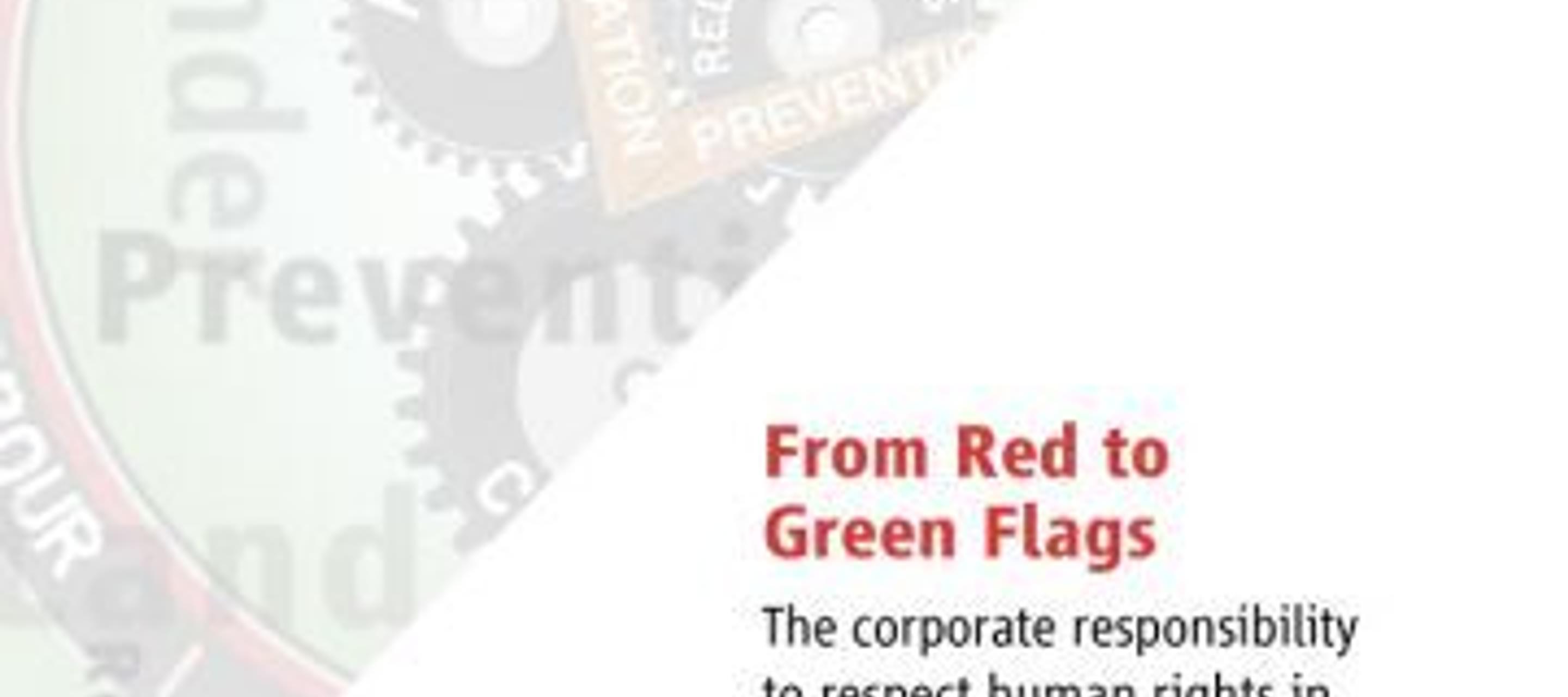From Red to Green Flags
2 May 2011

How can a company ensure respect for human rights in countries where the government is failing in its own obligations? This question lies at the heart of a new report published today by the Institute for Human Rights and Business (IHRB).
From Red to Green Flags: The corporate responsibility to respect human rights in high-risk countries. The report builds on earlier work undertaken in developing the 'Red Flags' guidelines.
Where ‘Red Flags’ outlined a list of things companies should not do when investing in high-risk countries, this report attempts to establish a clearer sense of what companies should do.
As the UN Human Rights Council prepares for its June discussion of the Guiding Principles on Business and Human Rights, finding answers to this question is likely to become increasingly urgent. The Principles constitute the final element of John Ruggie’s mandate as United Nations Special Representative. As the consultation process draws to a close, the challenge of implementing the ‘Protect, Respect and Remedy’ framework begins.
The challenge of implementation is nowhere greater than in high-risk countries – defined as those where the State lacks the authority to protect its citizens, lacks the capacity or will to provide basic services and/or lacks the legitimacy to represent its people.
The reality is that companies investing in such countries face increased risks but also pose increased risks. At the same time, their ability to manage or mitigate those risks is severely diminished. The reason is simple to define, if difficult to address: companies do not operate in a bubble.
Their impact is shaped by the environment around them as much as by their own choices. What implications does this have for their responsibility to respect human rights? Does operating in these countries entail additional responsibilities above and beyond those which apply in more stable contexts? And does State negligence (or worse) mean that companies are sometimes obliged to shoulder what ought to be government responsibilities?
The critical characteristic which distinguishes high-risk countries is companies’ relative lack of control. They may not be able to impose their standards, which might be obstructed by domestic law or government pressure. They are not in control of all their impacts, which are shaped by the actions of others – partners, suppliers, communities, governments. They do not even control their mitigation efforts, many of which will not be effective in the absence of external cooperation. This means that companies may adhere to the law, may even assiduously abide by best practice guidelines but still find themselves in breach of their commitments and facing hostility and resentment locally and internationally.
The problem is felt across the full spectrum of company impacts; their employment policies, security arrangements, environmental programs and their management of land and water. It influences engagement with numerous external actors – ‘relationships’ in the parlance of the Special Representative. It even affects the most basic principle of all – adherence to the law.
From Red to Green Flags: The corporate responsibility to respect human rights in high-risk countries explores precisely how a company’s responsibility translates into specific actions as well as offering more generic guidance on how a company might prepare itself to meet the particular challenges presented by operating in an environment of weak or repressive governance. The ideas presented are neither definitive nor exhaustive. However, by building on the platform provided by the ‘Protect, Respect, Remedy’ framework, the report suggests how a stronger consensus might develop around the framework’s application in high-risk countries.
Without this kind of consensus, many of the important advances captured by the framework may be lost. If agreement can be achieved, by contrast, companies, NGOs, governments and other parties can refine and put to use a set of tools that can not only guide company actions but enable objective assessments to be made of the progress companies make in meeting their responsibilities. As work on corporate responsibility goes forward, this must surely be a priority.




